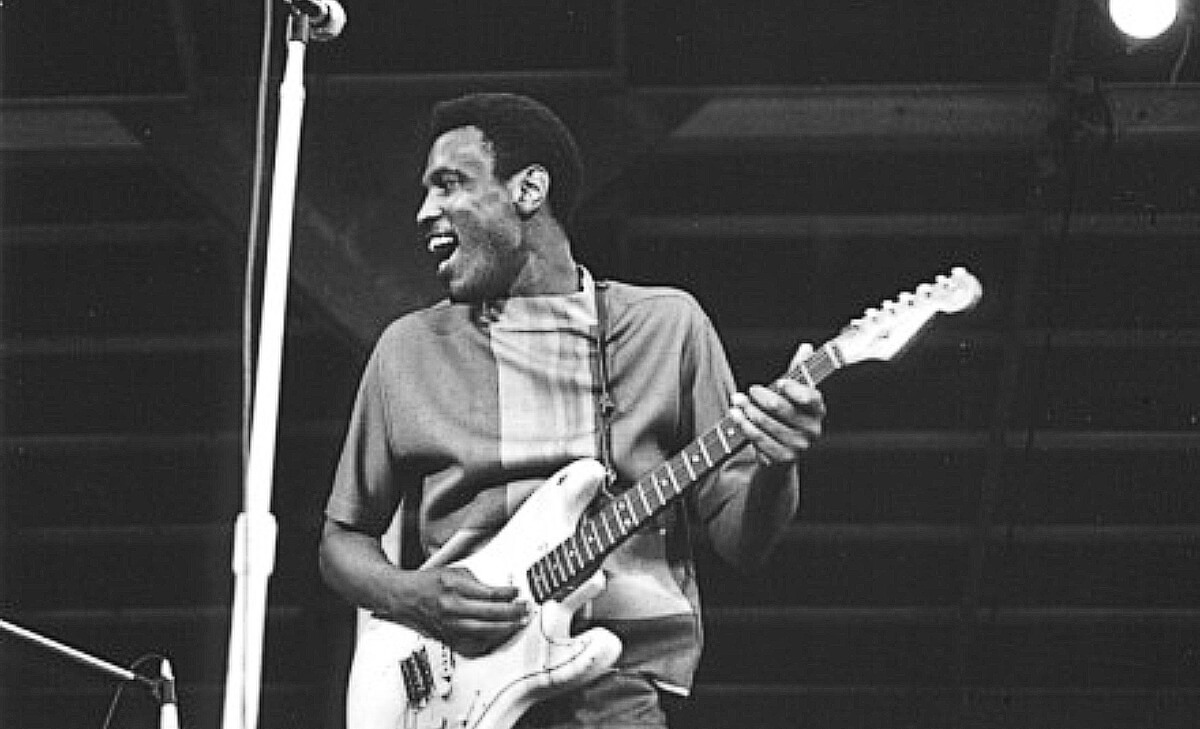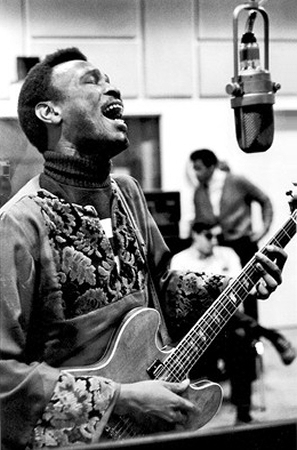The Blues Guitar Master That We Lost Too Early
When you think of bluesmen, who do you think of? Muddy Waters, Howlin' Wolf, B.B. King, well you're about to add another name to that list, because today, we're talking about Magic Sam.

Valentines Day, 1937, Hendersonville, Mississippi was born one Samuel Gene Maghett. From a young age he would play with anything from Cigar Box Guitars to Diddley Bows, and he was completely enthralled with music. His practice gave him some considerable skill on the guitar. At the age of 13 he moved to Chicago with his aunt, and her husband "Shakey Jake" Harris. He wouldn't let his age slow him down, he was said to compete with Elmore James, Freddie King, and Bo Diddley despite being much younger than them. In Chicago he first played with a gospel group called The Morning View Special and then with the popular "Homesick James Band". He started learning all he could about the Chicago style of blues, he took it and blended in his Mississippi hillbilly roots, the sounds of the delta, and a sprinkle of Memphis, which made him a man to be reckoned with in the scene. In the late 50s he was a staple of the club scene on the West Side of Chicago, and recorded singles for a local label. At the time the major sounds of electric blues were coming from the city's south side, but there was a new movement arising.

Promotional CD featuring Magic Sam and Otis Rush
Otis Rush, Buddy Guy, and of course, Sam himself were leading the way of the West Side sound. They had brought the screaming guitars to the front of the music. Sam may not have been the most technical one in the west, but it didn't matter, he was the most spontaneous and visceral, with his shrieking string bends, and a powerful intense voice, he created a power and soulful feeling that no one had ever seen before. His singles were popular in Chicago, but they were having trouble gaining traction outside the city, Cobra, the Label he and other West Side Sound artists dissolved in 1960, and the other artists on the label migrated over to Chess, Sam on the other hand, would go through something quite different. He was drafted in the army. Sam was a musician at heart and couldn't stand being away from the blues, and so he deserted. After getting back to Chicago he would record for the label Chief. Sam wasn't off the hook yet though, the army caught up to him, and he was sentenced to 6 months in military prison. He served his time and was given a dishonorable discharge in 1961.

Magic Sam belting it out in the studio
After his release he would record some more singles on various labels. One year later he would be at a Muddy Waters show also attended by Bob Koester, owner of Delmark records. Sam was called up on stage by Muddy, and tripped on wiring sending sparks flying, Koester would later cite this saying that his singing and playing had been even more electrifying. In 1963, his single "Feelin' Good (We're Gonna Boogie)" gained national attention. He successfully toured the U.S., Britain and Germany. Sam would tour and record singles for 4 more years until he was finally signed by Bob Koester to Delmark records. Sam began working on his first album in July 1967, at Sound Studios in Chicago. Sam was about to make a masterpiece of electric blues, and his playing on this album is some of the best blues guitar put to record, it's full of energy, and style, it was full of songs that would become classic because of Sam, this album will get your blood pumping, and rattle your bones.

The album cover for 'West Side Soul'
He teamed up with other Chicago session musicians to make this album something truly special. It was released in 1967 under the name West Side Soul. It was a smash success and would inspire the blues world for years to come, it was revered as some of the best and most essential electric blues of all time, and in 1984 was inducted into the Blues Hall of Fame. While the world was still admiring Sam's seminal West Side Soul, he was back in the studio, this time to make his album Black Magic. While West Side Soul might be the most fondly remembered of the two, Black Magic was reportedly Sam's preference, quoted as saying that it would not only be the best album he'd ever record, but the best album he'd ever heard. The album is just as burning and electric as West Side Soul, but his voice might have even more soul, occasionally slowing it down for some R&B influenced tracks, and notably adding a saxophone to the mix. This album too was revered by critics, and was inducted into the Blues Hall of Fame in 1990. The album's a great showing that Sam was no one trick pony, and he had it in him to incorporate elements into his powerful blues abrasiveness that others might be wary of, but Magic Sam knows how to work with it.

Magic Sam at the Ann Arbor Blues Festival
Sam was still playing concerts up until 1969, even playing at Ann Arbor Blues Festival, which is considered his breakout show, as he got booked for many more shows in the US and Europe afterwards, but as fate would have it, December 1st 1969 Magic Sam would have a heart attack and died at the age of 32 years old. He was buried in Restvale Cemetery, the resting place of many blues greats such as Muddy Waters, Earl Hooker, Eddie Taylor, and many more. In February 1970, the Butterfield Blues Band played at a benefit concert for Magic Sam, at Fillmore West along with Mike Bloomfield, Elvin Bishop, Charlie Musselwhite and Nick Gravenites. Sam received many posthumous rewards for his contributions to blues, and is still raved about by critics to this day. Magic Sam left a legacy on the blues world that few have even come close to, and he will forever be remembered as an innovator, and a pillar of electric blues. Here's to a legend gone much too soon.